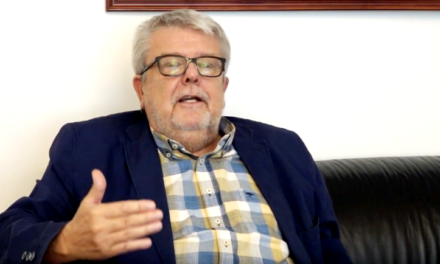According to the analysis of RAND, which is close to the Pentagon, the American interest is the same as the Hungarian one: ending the war as soon as possible, a cease-fire and a political settlement. (The article below is the second part of the analysis.)
According to the study, the current level of hostility between Russia and Ukraine, and between Russia and the West, makes a political settlement much less likely than a cease-fire, and the United States should use whatever means at its disposal to facilitate it. This is possible in four areas.
1. How much aid will Ukraine receive?
First of all, the amount of future assistance to be provided to Ukraine should be clarified. The assessment of the outcome of the war, whether on the Ukrainian or Russian side, strongly depends on Western support for Ukraine. This should be extended to such an extent that neither side trusts in complete victory and instead seeks a negotiated settlement. Linking aid to Ukraine's willingness to negotiate will seem counterintuitive in Western political debates, since Ukraine is defending itself against an unprovoked Russian aggression. However, as the costs and risks of the conflict increase, the American perception may change. And the reduction in war aid can be linked to promises to increase long-term, sustained aid to Ukraine after the fighting.
2. How engaged will America be militarily?
Another area where the United States can do something about a political settlement of the conflict is its commitment to the security of Ukraine. A U.S. security commitment—especially one that would involve military intervention should Russia attack again—would deter Moscow from future aggression. A commitment by the United States or allies to the post-war security of Ukraine could make peace more attractive to Kiev. The security commitment of the United States to Ukraine may be uncomfortable for Moscow, since one of the motives of Russia's war was to prevent Ukraine's rapprochement with the West. The authors of the Istanbul Declaration envisioned overcoming this challenge by having Russia participate in a multilateral security guarantee agreement that included the United States and other countries named as guarantors.
The guarantee is accepted on the condition that Ukraine remains neutral, does not enter into an alliance with any power, there will be no foreign military bases and joint military exercises with foreigners on Ukrainian territory.
A US guarantee comes with costs and risks, but would contribute to Ukraine's greater willingness to negotiate, end the war, and deter future Russian aggression, so this option should be carefully considered.
3. What could Ukraine's neutrality mean?
The third area where the United States has influence is Ukraine's neutrality. America and its allies could commit to Ukraine's neutrality as contained in the Istanbul Declaration. It is true that this would contradict NATO's open door policy, and it would also be frowned upon in Kiev, because the prospective NATO membership would be removed from the agenda, and there would be nothing else to replace it. From a political point of view, any government in Kyiv would need something to present to the public as compensation for "losing" the opportunity to join the alliance.
However, a combined commitment to Ukraine's security and neutrality would be a novel and delicate construct for the United States.
4. Sanctions could be eased
Finally, offering a path to partial sanctions relief would be a step that could make negotiations more likely. International experience proves the effectiveness of such deals. For example, the promise of less retaliation contributed to Iran's willingness to negotiate over its nuclear program and to Libya's agreement in 2003 to give up its weapons of mass destruction.
But opponents of sanctions relief argue that it would reward Russian aggression. However, this ignores the huge price Russia has already paid for this war: it has caused significant damage to its economy, damaged its international reputation, and encouraged neighboring Finland and Sweden to join NATO. It should also not be forgotten that the United States has made significant efforts to create and hold together a global coalition to sanction Russia. He would have to gain the support of the members of this coalition before signaling to Russia the possibility of softening the retorts. But it may not be possible to get all members to agree, and that could limit the amount of relief the Americans can offer. Moreover, U.S. leaders may pay a political price at home and among allies who oppose sanctions relief.
Mandiner's April 10 article in its entirety here.
Author: Károly Lóránt
Image: RAND












